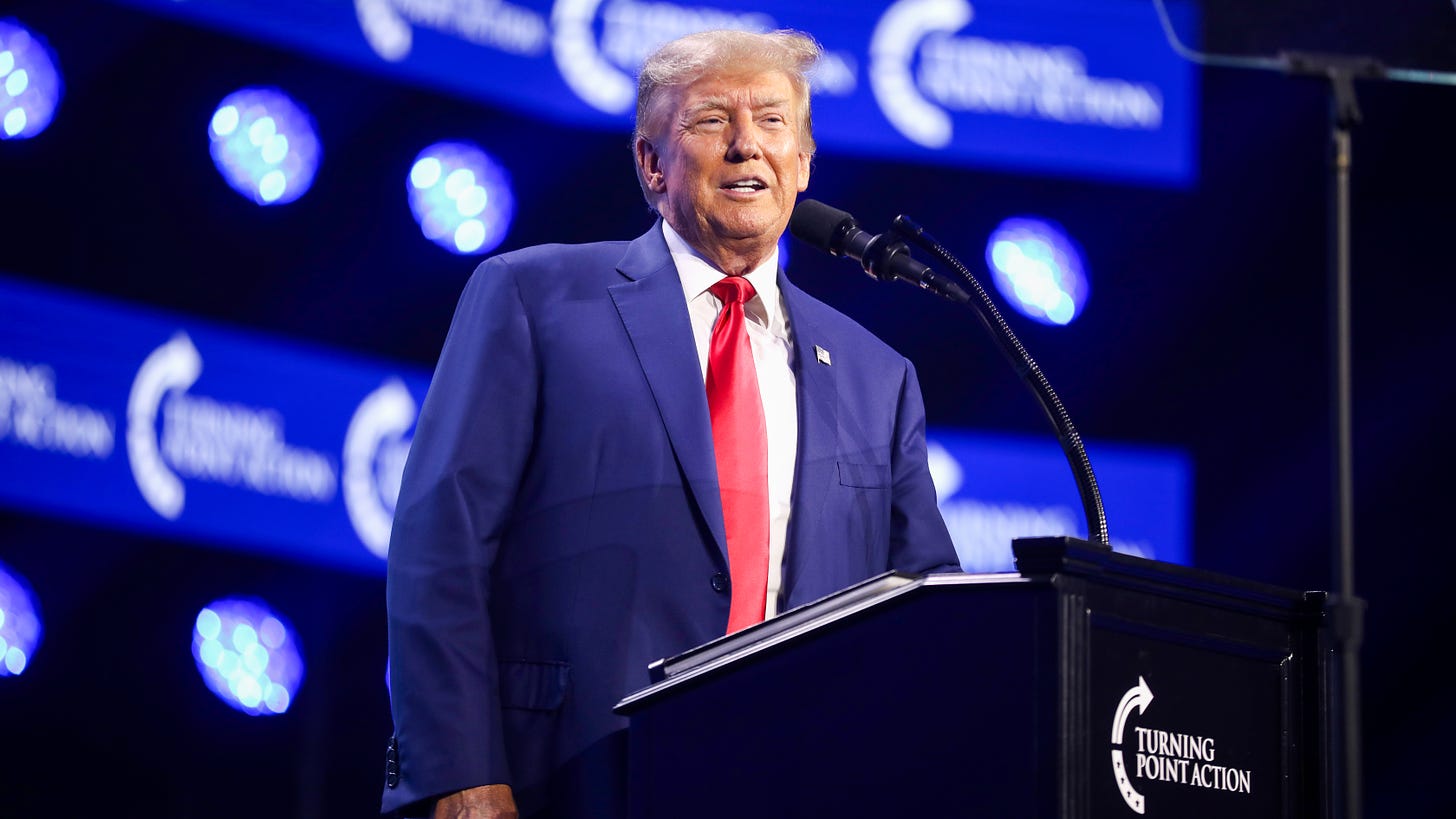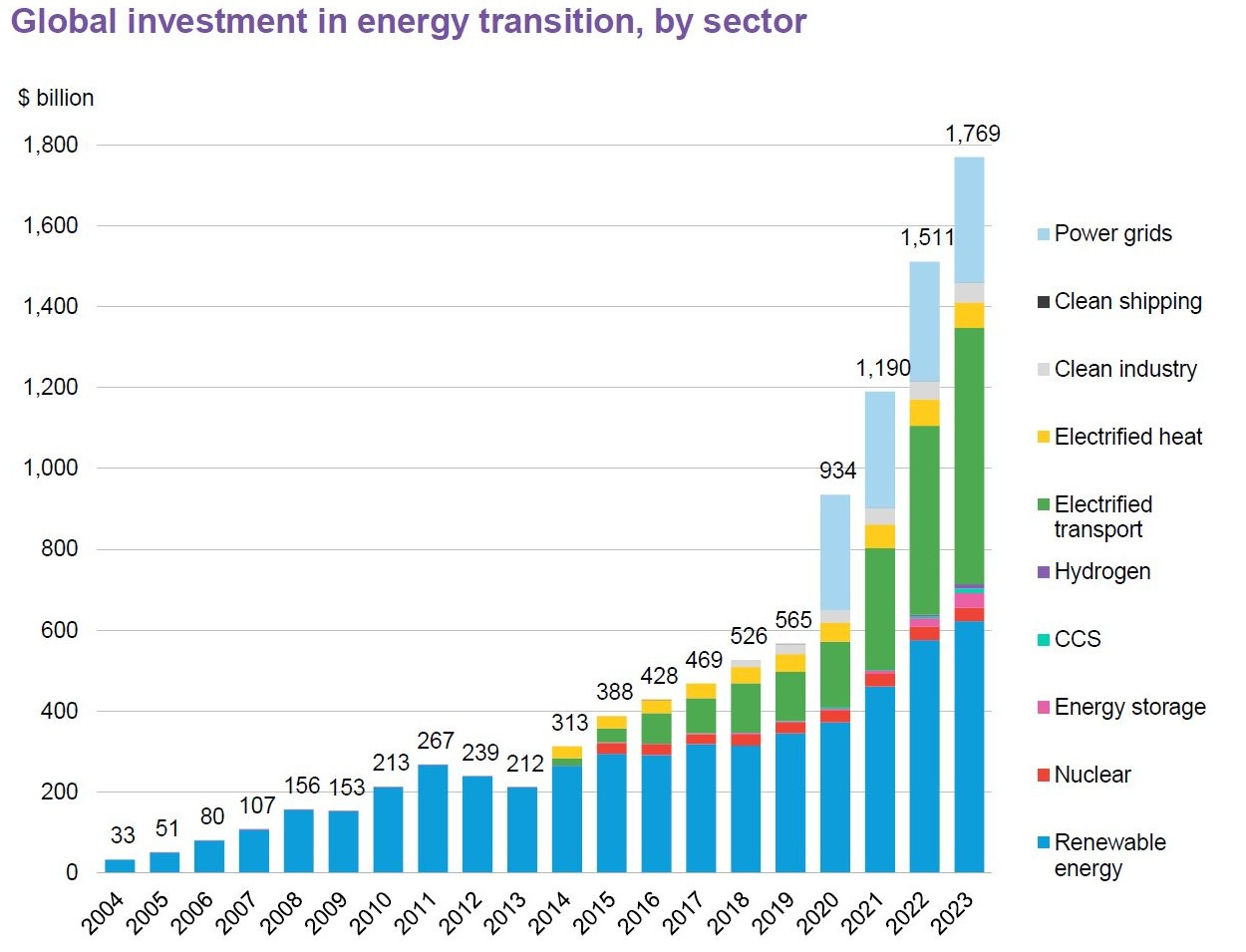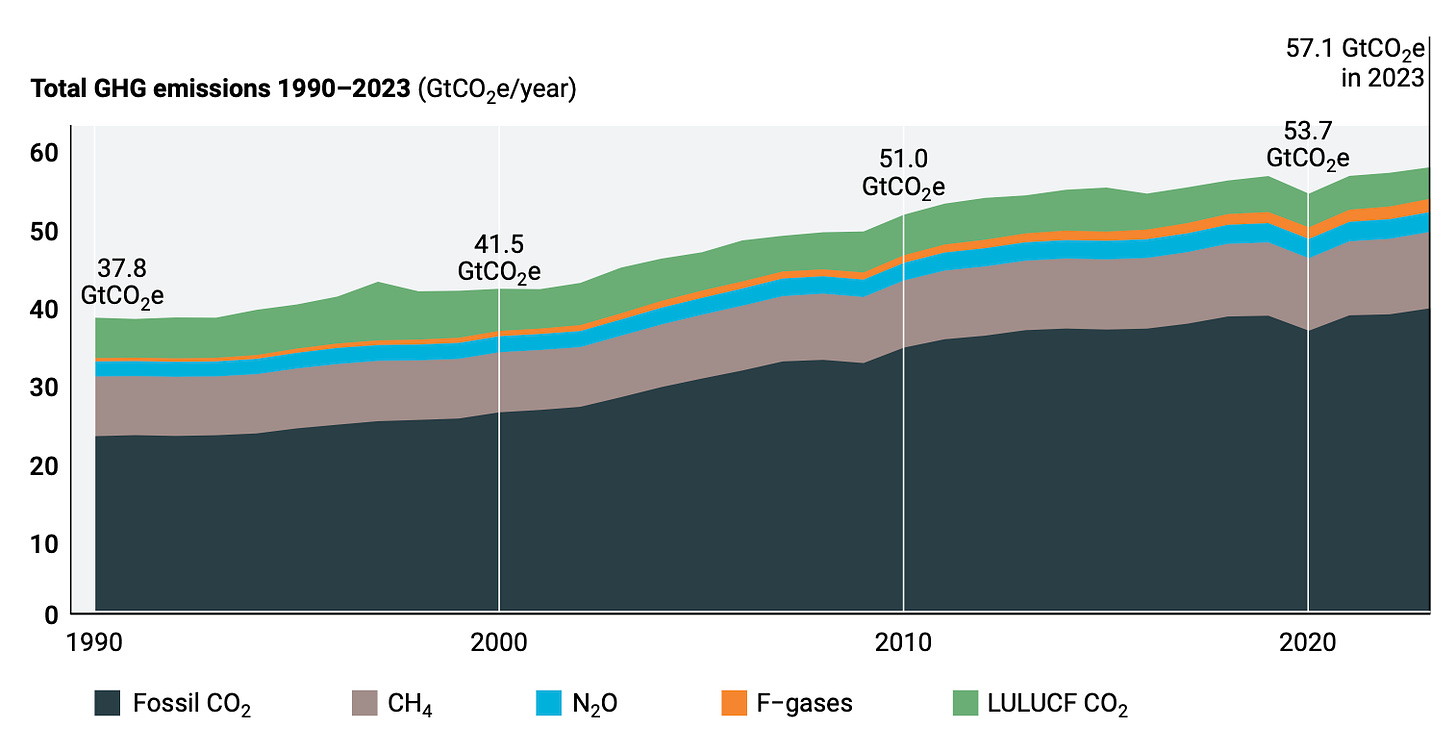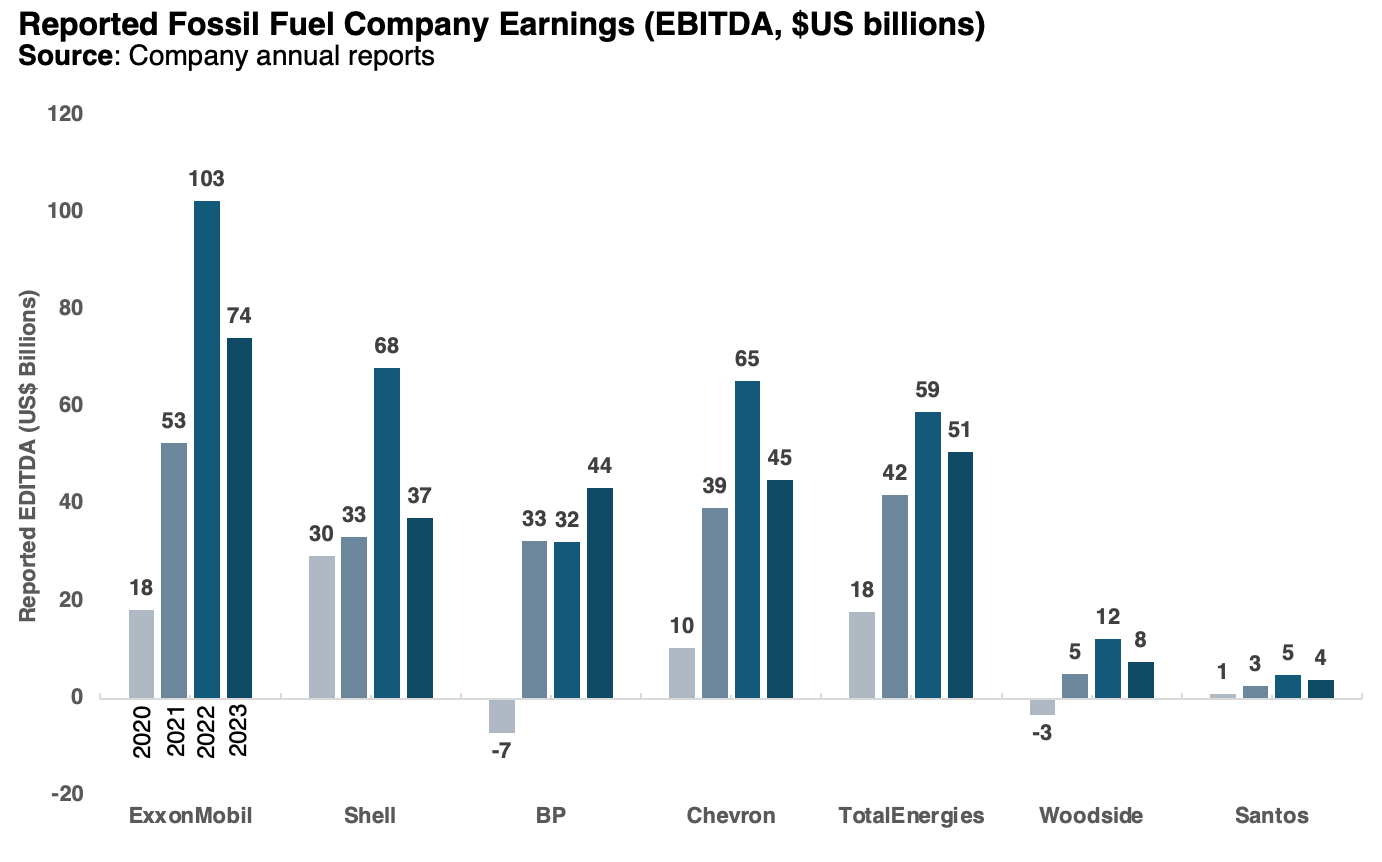Three charts explain why Trump's return won't change the climate crisis equation
Donald Trump's return to power will complicate global efforts to tackle climate change, but his re-election as US President doesn't alter the challenge that was already before us.

Well, Donald Trump is back.
The re-election of Trump as the President of the United States is a shocking and disturbing result for many and for many reasons - particularly given the strength of his election win. There is perhaps little value in adding to the flood of opinion pieces and hot-takes seeking to explain how Trump won and why Kamala Harris lost.
They are all a bit like this:

There is value, however, in taking stock of where we now stand with regard to the political environment, with respect to future policy directions and the challenges that now lay ahead of us for the next four years.
The Trump victory will have broad and profound ramifications for many people and on many issues. On climate change, Trump’s return will no doubt serve as a disruptive force committed to derailing the global momentum towards ending our use of fossil fuels and taking action to protect the health of our planet.
However, there is a strong case to be made that the second Trump presidency will change very little regarding the scale of the climate crisis we face and how we need to respond to it.
Trump’s future impact
Undoubtedly, a second Trump presidency will make solving the climate crisis more difficult. Trump will move to withdraw the United States from the Paris Agreement, and potentially the UNFCCC altogether. He will also seek to redirect billions of dollars of government support away from investment in clean energy infrastructure and towards the fossil fuel industry.
Carbon Brief has estimated that Trump’s announced policies would lead to an additional 4 billion tonnes of CO2-e emissions by 2030. That’s approximately nine years’ worth of Australia’s total annual emissions.
The Inflation Reduction Act (IRA), the landmark policy implemented by the Biden administration that has stimulated hundreds of billions worth of investment in new, lower emissions infrastructure, will be a target for Trump. The Biden administration has, thankfully, dispersed the vast majority of the almost US$400 billion in funding allocated to clean energy technologies under the Act.
Representatives of US clean energy sector spoke glowingly of the IRA and the positive impact it has had on America’s growing clean technology sector throughout events at the recent New York Climate Week. It has proven popular in many Republican-held regions, and while that did little to help Kamala Harris’ electoral performance, it may quell Trump’s desire to repeal it completely.
Of more consequence is Trump’s commitment to support a resurgence in the United States’ fossil fuel industries across oil, gas and coal. Trump has stated ambitions to grow US fossil fuel production by as much as five times the current level, which would slow the global energy transition.
Likewise, Trump’s victory could provide momentum for other anti-climate action political movements in other countries. Australia is a prime candidate. I’ve written about Trump’s potential to influence Australian climate policy previously, and his agenda could soon be parroted in Australia and elsewhere.
Trump will be bad for the climate.
But we were already in major trouble.
We already need to dramatically ramp up climate action
In late October, the United Nations Environment Program (UNEP) published the latest edition of its annual Emissions Gap Report, which details the ‘gaps’ between national climate commitments - including targets (known as Nationally Determined Contributions, or ‘NDCs’) and policies - and the level of action that is necessary to keep global warming to below 1.5 degrees.
The UNEP found the emissions gap remains substantial. Stronger targets and stronger policies are needed.
The UNEP warns that current climate policy commitments have us on track for a “catastrophic temperature rise of up to 3.1°C.” Discouragingly, the UNEP found the action gap remained unchanged throughout the 2023 year and that “global greenhouse gas emissions set a new record of 57.1 GtCO2e in 2023.”
Chart 1
At that level of global emissions, we will exhaust the remaining carbon budget that would allow us to limit global warming to 1.5 degrees in less than four years. It is clear that on a global level, we have long been failing to bend the emissions growth curve.
Under Biden, the United States has not been undertaking its ‘fair share’ of climate action and - according to Climate Action Tracker - neither has Australia, Canada, China, Japan, New Zealand, the United Kingdom and the European Union. Virtually all major industrial countries are not meeting the level of action needed to ensure we have a safe planet.
This challenge existed before Trump, and the urgency and scale of the threat before us was already substantial. As a ‘State of the Climate Report’ published in October warned:
“For half a century, global warming has been correctly predicted even before it was observed—and not only by independent academic scientists but also by fossil fuel companies. Despite these warnings, we are still moving in the wrong direction; fossil fuel emissions have increased to an all-time high, the 3 hottest days ever occurred in July of 2024, and current policies have us on track for approximately 2.7 degrees Celsius (°C) peak warming by 2100. Tragically, we are failing to avoid serious impacts, and we can now only hope to limit the extent of the damage.”
- The 2024 state of the climate report: Perilous times on planet Earth
We already have bigger threats to fight
Just as runaway global warming poses an existential threat to life on Earth, the action needed to prevent runaway global warming presents an existential threat to the fossil fuel industry.
We need to stop using coal, gas and oil as soon as possible. The equation is that simple. Measures like carbon offsetting and technologies like carbon capture and storage have failed to deliver on their promise, and there’s no genuine prospect that any continued use of fossil fuels is compatible with a safe planet.
Unfortunately for the planet and for us, fossil fuel companies have in recent years reaped heavily inflated profits - largely thanks to the disruption to energy markets caused by Russia’s invasion of Ukraine - with many oil and gas majors recording historically high profits in 2022.
The five largest fossil fuel companies recorded a combined US$281 billion in profits in the year following the Russian invasion. Inflated profits continued into 2023.
Chart 2
So, the fossil fuel industry is now cashed up and well-resourced to fight for its own continued existence, and fossil fuel companies are deploying these amassed profits to influence politicians, fight opponents in the courts, and support efforts to ramp up criminal sanctions against climate activists.
Fossil fuel companies are abandoning previously announced commitments to pivot their businesses to clean energy and instead re-investing their profits into increased fossil fuel production.
We have also long observed the extent to which fossil fuel interests have been able to permeate into offices of power - using money to influence climate and energy policy.
As one recent example, on Friday, human rights organisation Global Witness revealed the results of an undercover investigation into key representatives of COP29 host Azerbaijan. The investigation exposed the chief executive of the COP29 talks, Azerbaijan’s deputy energy minister Elnur Soltanov, as eagerly seeking to facilitate fossil fuel deals among the events of the next round of international climate negotiations.
The White House isn’t the only place fossil fuel companies will continue to exert influence, and we will need to remain vigilant of their ability to stymie climate action, particularly now that they have made substantial profits off Russia’s war.
Our ability to act remains in place
As comedian Dan Ilic said on the latest episode of the A Rational Fear podcast, Trump’s re-election is an “event that can only be described as ‘precedented’”.
We’ve been here before. We’ve had conservative leaders in other major economies, and yet the economic fundamentals of the clean energy transition remain in place - in fact, they continue to improve.
Trump’s election doesn’t change the maths: the use of fossil fuels is costly in the short term and economically damaging in the long term, and switching to clean energy technologies provides a cheaper and safer alternative across both timescales.
As this chart from BloombergNEF shows, growth in clean energy investment largely continued uninterrupted despite climate deniers coming in and out of power across governments worldwide, including the first Trump presidency. This is because the economic fundamentals continue to work in favour of climate action.
Chart 3

The challenge we face
While it is true to say that growth in clean energy investment has remained strong in the face of headwinds (such as the first Trump presidency), it is also true to say that the pace and scale of investment need to be dramatically higher than current levels.
The forthcoming second Trump presidency doesn’t change the fact that we need to push on all levers available to drive greater climate action. Crucially, those levers will still exist. This includes taking action at a sub-national level, organising within our local communities and using our powers as citizens and consumers to hold fossil fuel companies accountable for their efforts to block the phase-out of fossil fuels.
We must demand that all governments adopt stronger climate targets and policies to deliver a rapid and just transition to zero emissions - bridging the ‘emissions gap’ - and demand corporate action that has meaningful outcomes for the climate.
The climate crisis emerged long before Trump first entered the White House, and it will continue to be a challenge we must confront for years after he has left it for the last time. His victory doesn’t change the work that needs to be done to save the planet.
We’ve always known the climate challenge that is before us, and we still have the means to tackle that challenge. Trump doesn’t change that.






